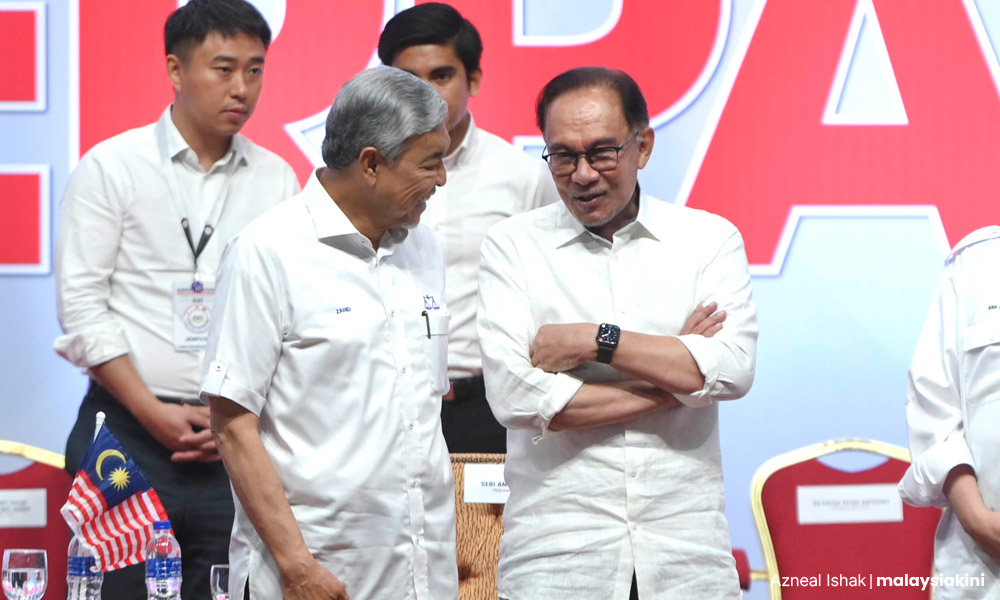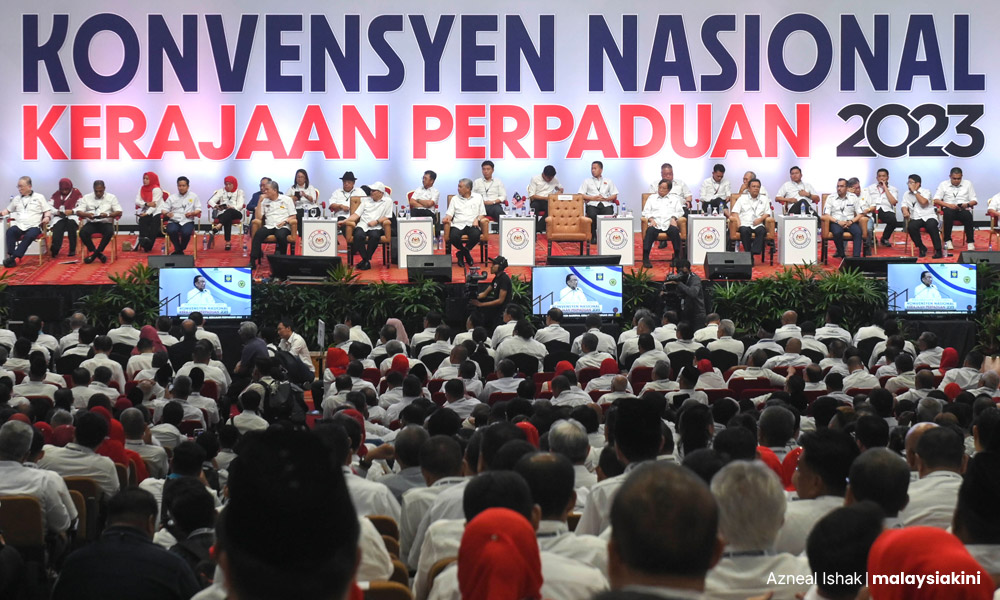Bridget Welsh’s assessment of Anwar Ibrahim’s second year of running the government is riddled with inconsistencies, lacks nuance and seems to ignore the monumental challenges faced by the unity government.
Her narrative appears to simplify complex realities while indulging in selective criticisms that fail to provide a balanced view.
Personalisation of power: Mischaracterised leadership
Welsh claimed that Anwar’s governance in year two was characterised by an excessive personalisation of power, akin to Dr Mahathir Mohamad’s centralisation before 2004.
The fact is Welsh failed to grasp the distinction between effective leadership and personalisation of power.
In a coalition as ideologically diverse as the unity government, Anwar’s visible and hands-on leadership is not just necessary - it’s indispensable for ensuring stability and coherence.
The claim of centralisation disregards the significant roles played by other leaders in the government. Figures like Rafizi Ramli (economy minister) and Saifuddin Nasution Ismail (home minister) are driving substantial reforms in their portfolios.
This is not a one-man show; it’s a coordinated team effort.
Welsh also ignored systemic realities. Personalisation is a structural feature of Malaysian politics, rooted in public expectations for strong leadership.

Anwar’s prominence reflects his responsibility to unify and lead a coalition, not a consolidation of unchecked power.
Political alliances: Necessary compromises misconstrued
Welsh claimed that Anwar's relationships with Umno, Gabungan Parti Sarawak (GPS), Gabungan Rakyat Sabah (GRS) and DAP are characterised by “appeasement, accommodation, and acquiescence,” compromising reformist ideals.
However, managing a coalition of former rivals is no small feat. Welsh’s critique dismisses the historical significance of the unity government, which bridges ideological divides unprecedented in Malaysia’s history. Pragmatic compromise is not a betrayal of reform but a precondition for stability.
Anwar’s engagement with Umno, GPS and GRS ensures representation for Sabah, Sarawak and rural Malay constituencies, addressing long-standing grievances.
Federal allocations to Borneo have increased, strengthening national unity.
Welsh also wrongly paints DAP as being sidelined. In reality, the party continues to influence key policies, especially in education, economic management and minority rights. The unity government prioritises results over optics, contrary to her insinuations.
Electoral vulnerability: A misleading diagnosis
The academic also claimed that the unity government is increasingly vulnerable, with non-Malay and younger voters disenchanted.
The fact is she is just an alarmist with groundless claims. Winning three of four by-elections in 2024 counters Welsh’s assertion. The government has demonstrated its ability to regain ground, including in challenging constituencies.
Programmes like The Step-Up Financing Scheme which was introduced as a government guarantee of up to RM5 billion specifically for young people who wish to own their first home show the government’s targeted approach to winning the trust of younger voters.

Anwar’s "Meet Anwar" dialogues further enhance direct engagement with this demographic.
While challenges remain, the coalition is rebuilding multi-ethnic support rather than relying solely on any one voter base. Welsh’s focus on discontent overlooks the ongoing efforts to address key grievances.
‘Madani cartel’ narrative: An overreach
It was also claimed the government has become a “Madani cartel” prioritising consolidation over reforms.
The fact is political stability is of paramount importance as a reform enabler. Political stability is not a vice; it is a prerequisite for implementing reforms.
Welsh dismisses this fundamental reality, preferring to see compromise as a failure rather than a means to govern effectively.
Contrary to her claim, reforms are underway. The abolition of mandatory death penalties, introduction of the Public Finance and Fiscal Responsibility Act, and steps toward separating the roles of the attorney general and public prosecutor offices are all substantive achievements. Calling these efforts inadequate is both premature and unfair.
Malay-Islamic politics: A balanced approach ignored
She further claims that the government has embraced conservative Islamisation, alienating non-Malays.
The fact is the government’s policies strike a balance between upholding Islam’s constitutional role and protecting the rights of minorities. Interfaith dialogues and efforts to counter extremism showcase a moderate and inclusive narrative.
She also ignores how the opposition weaponises race and religion to polarise society. The government’s strategy to maintain communal harmony deserves recognition, not unwarranted criticism.
Leadership without mandate?
Welsh’s last claim is that Anwar is weaker because he lacks an electoral mandate to be prime minister.
However, Anwar’s position as prime minister is grounded in parliamentary democracy, reflecting the support of elected representatives. This is both constitutionally sound and democratically valid.
The legitimacy of leadership also lies in outcomes, not origin stories. Anwar’s government has stabilised the economy, attracted record foreign investments and undertaken meaningful governance reforms. These achievements are what matter to the rakyat.
Overall, Welsh’s assessment is not just overly critical - it is deeply flawed in its interpretation of the complexities faced by the government.
Her analysis fails to appreciate the significant strides made under Anwar’s leadership in stabilising Malaysia’s fragmented political landscape and advancing reforms.

Instead of dwelling on speculative risks and hypothetical pitfalls, critics should acknowledge the progress achieved against enormous odds.
The Madani government’s efforts in fostering national unity, delivering economic recovery and implementing reforms lay a solid foundation for future success.
Welsh’s narrative might resonate with cynics but it lacks the depth and fairness required for a credible critique. - Mkini
RUSDI OMAR is the dean of the Ghazali Shafie Graduate School of Government, Universiti Utara Malaysia.
The views expressed here are those of the author/contributor and do not necessarily represent the views of MMKtT.

No comments:
Post a Comment
Note: Only a member of this blog may post a comment.